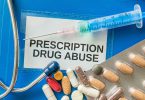Given that nearly 24 million Americans are addicted to alcohol or drugs, there are certain patterns that are common among people who deal with addiction. Those risk factors for addiction can be as common as divorced parents to something as specific as having a family member who struggled with addiction.
If you think you or someone you love is at a high risk for addiction, you should be careful to give them the support they need to stay away from substance abuse.
Here are 5 major risk factors that can lead to addiction or that kind of behavior.
1. Unstable Family Life
If you grow up with a family that was constantly arguing or insecure financially, that could have caused stress that can last for an entire lifetime. The death of a family member or loved one could leave a lasting mark on the psyche of a growing person.
There are also elements of abuse that drive people to seek out substances. Without the aid of a psychiatrist or a pharmacist to manage how much of a safe substance to use, some people overuse unsafe substances. Over time, as tolerance grows, addiction will take its place.
As the body gets accustomed to using a substance, it can’t function normally without it. What was once an escape to deal with the pressures of family is now a hurdle for living a normal life. When substances take the place of therapy or prescribed medication, addiction will occur.
2. A Weak Network of Friendships
We depend on our friendships to steer us in the right direction and to help us deal with the problems in our personal lives. We also use our friendships to blow off steam, whether it’s through going out to dance at a concert or playing a sport together.
These kinds of healthy expressions of our emotions and our energy keep us from focusing and obsessing on negative issues. A strong network of friends sees when someone in their circle is having a problem and can intervene when they feel the friend needs someone to listen.
While our friends shouldn’t take the place of a therapist, they do play a therapeutic role in everyday life.
People who lack a strong network of friends to call or text when things get hard will find themselves vulnerable to addiction. They could find comfort in food, in negative thinking, illicit substances, or even a combination of the three.
This is a cocktail that good friends can help you from steering yourself into. They will speak up or tell you when they think you’re off the track you want to be on.
3. Compulsive Behavior
Following a serious breakup, the death of a loved one, or loss of a job, people are more likely to engage in compulsive behavior. During this period, it’s natural to say “why not?” to an extra hour out on a Friday night, to an extra dessert, or to an extra drink. What is dangerous is when this becomes the norm.
Compulsive behavior will lead to addiction when people can’t control how much of a substance they use. Compulsion combined with the addictiveness of certain substances is a dangerous combination.
If you or someone you know has the tendency to be compulsive, obsessive, or act emotionally, they should stay away from addictive substances. If you find your friend or family member with those traits may be using, you should see what can be done as soon as possible.
4. Feelings of Loneliness
Loneliness causes us to do strange things. We end up in imperfect relationships, settling for situations that aren’t positive for our growth, all because we’d rather not be alone. This same problem can lead to substance abuse.
If we find its difficult to deal with the human realities and imperfections of love, whether in families or with partners, we may prefer the control of substances. When we’re using a substance, we’re in control of our time and our lives. We don’t have to think about other people.
The problem is that our behavior always has an effect on the people around us, whether we’re sober or not. We share a world and a set of responsibilities to one another to listen, to forgive, and to care for each other. The selfishness of addiction clouds our ability to see that basic human reality.
5. Family History of Addiction
The susceptibility of some people to be more easily to addicted to substances than others is linked to our genetic code. While it’s still a combination of nature and nurture, if there is a family history of addiction among our parents or extended family, we need to be careful. We could become addicted more easily than the people around us.
We should learn from any family history of addiction rather than repeat the pattern. If you or someone you know is struggling with substance abuse, see if someone in their bloodline has struggled as well. Ask if they can help to advise how they got sober and stayed that way.
While not everyone in a family will have the same addiction, look for a pattern of addictive personalities. Be wary of cross-dependency or any kind of replacement of one addiction for another. While someone in your family may have kicked an illegal drug, if they’ve replaced it with a legal one, this is dangerous behavior to watch out for.
Risk Factors For Addiction
Depending on your life experience, your income, and your education, the risk factors for addiction might look a little different. If you have a kind and supportive family and start off using substances responsibly, it might take you longer to notice bad behavior than other people. Someone who went through a traumatic experience that led to addiction will be able to point to a moment of origin in ways others might not.
If you’re considering going through a holistic rehab treatment program, check out our guide to how they work or reach out to us at (877) 322-2450.

















